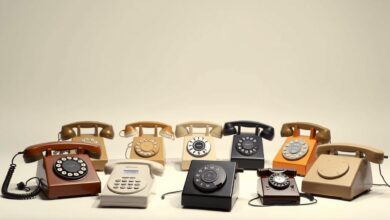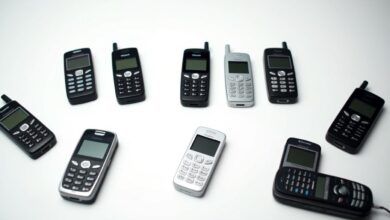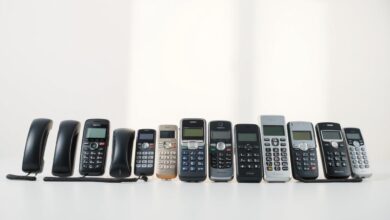Find the Best Cell Phone Without Internet
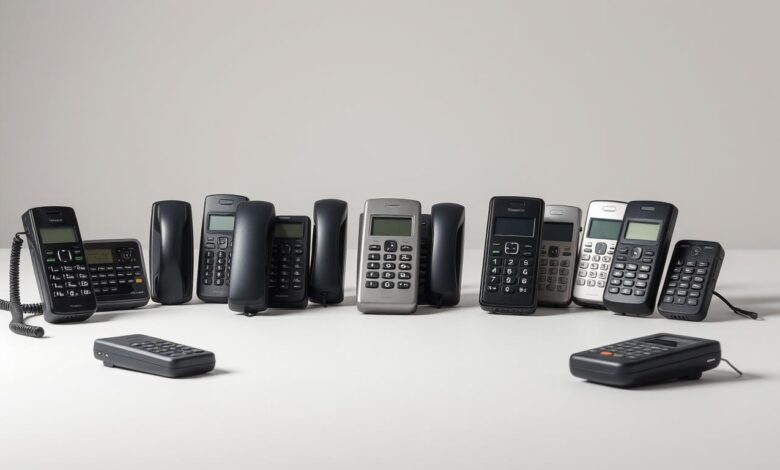
In today’s world, many people are turning to dumb phones or feature phones. These devices offer simplicity and a break from the constant need to be connected. They are not just old-fashioned phones but are becoming popular for their ease of use and functionality.
The charm of a cell phone without internet is its ability to provide basic communication. It does this without the distractions and complexities of smartphones. This makes them perfect for those who want a simple mobile experience.
Key Takeaways
- Understanding the appeal of dumb phones and feature phones.
- Exploring the benefits of using a cell phone without internet.
- Identifying the best options available in the market.
- Considering the features that make these phones desirable.
- Evaluating the simplicity and functionality they offer.
What Are Cell Phones Without Internet?
Cell phones without internet are called feature phones or dumb phones. They are simple devices for making calls and sending texts. Some may also have a camera or music player.
These phones are great for those who want to stay away from the digital world. Good Housekeeping UK says dumb phones are getting popular again. This is because people want a simpler mobile experience.
Definition and Types
There are mainly two types of cell phones without internet: feature phones and smartphones with internet disabled. Feature phones are simple and focus on basic tasks. They have a long battery life and no internet.
If you’re looking for a phone for kids, consider simple and safe options. You can learn more about phones for kids without internet. They are good for kids.
Feature Phones vs. Disabled Smartphones
Feature phones and disabled smartphones are similar but different. Feature phones are made for simple use. Disabled smartphones still have all their features but can’t use the internet.
| Characteristics | Feature Phones | Disabled Smartphones |
|---|---|---|
| Primary Function | Calling and Texting | Calling, Texting, and More |
| Internet Capability | Limited or None | Disabled but Capable |
| App Support | Limited | Extensive |
The table shows the main difference. Feature phones are simpler and have fewer features. Disabled smartphones still have more capabilities, even without internet.
Why You Might Want a Phone Without Internet
Smartphones are a big part of our lives, but some people prefer phones without internet. This is because we need to sometimes disconnect from technology. It helps us focus better and live more simply.
Digital Detox Benefits
One key benefit is the chance to do a digital detox. This means avoiding constant notifications and emails. It helps us stay calm and focused on what’s around us.
Studies show that digital detox can improve our mental health. It can make us less anxious. For more on this, check out Gabb Wireless.
Cost Savings Without Data Plans
Another big plus is the cost savings. Phones without internet don’t need data plans, which saves money. This is great for those who don’t need to be online all the time.
By choosing a basic phone or turning off data, you can save a lot. This money can go towards other important things.
Enhanced Privacy and Security
Using a phone without internet also boosts privacy and security. It makes it harder for hackers to get into your phone. Plus, it stops you from mindlessly browsing online.
This is especially good for those who want to keep their online life private. A non-internet phone is a simple way to do this.
In short, choosing a phone without internet is a smart move. It’s simpler, cheaper, and safer. Whether you want to detox, save money, or keep your privacy, these phones are a great option.
Best Cell Phone Without Internet Options in 2023
In today’s world, phones without internet are becoming more popular. They offer a break from the constant need to be connected. These devices are simple yet functional.
Selection Criteria
Choosing the best phones without internet involved several key factors. We looked at battery life, durability, and how easy they are to use. We also considered features like FM radio and flashlights.
Reviews from trusted sources like Good Housekeeping UK helped us make our choices. We wanted phones that meet the needs of those who don’t need the internet.
How These Phones Compare to Smartphones
These phones are different from smartphones because they’re simpler. They focus on basic tasks like calling and texting. They also last longer on a single charge and cost less.
Here’s a comparison of some top models:
| Model | Battery Life (Standby) | Additional Features | Price |
|---|---|---|---|
| Nokia 3310 3G | Up to 31 days | FM Radio, Snake Game | $50 |
| LG Classic Flip | Up to 8 days | Basic Apps, Simple UI | $70 |
| Sonim XP3 | Up to 23 days | Rugged Design, Flashlight | $100 |
A review in Good Housekeeping UK noted, “The simplicity of these devices is their greatest strength. They offer a break from the constant distractions of smartphones.”
“The simplicity of these devices is their greatest strength, offering users a respite from the constant notifications and distractions of modern smartphones.”
In conclusion, the best phones without internet in 2023 are easy to use, last a long time, and are affordable. They’re great for those who want a digital detox or a reliable backup phone.
Top Basic Feature Phones for Simplicity
Many people look for simple phones in today’s tech world. Basic feature phones are a great choice. They focus on the basics like calling and texting, without all the extra stuff.
Nokia 3310 3G
The Nokia 3310 3G brings back the classic Nokia 3310 with new features. It keeps its simple design but adds modern touches. Good Housekeeping UK praises it for being reliable and easy to use.
Key Features
- Reliable Performance: It’s tough and lasts a long time on a single charge.
- Simple Interface: The menus are easy to navigate, thanks to physical buttons.
- Entertainment: You can listen to FM radio and play simple games.
Pros and Cons
The Nokia 3310 3G has many good points. It lasts a long time and is built to last. But, it can’t run many apps and doesn’t have internet.
“The Nokia 3310 3G is perfect for those who want a phone that’s easy to use and doesn’t distract them with notifications.”
In summary, the Nokia 3310 3G is great for a simple phone experience. It combines old-school charm with new features, making it a top pick for basic phones.
Best Flip Phones Without Internet Capabilities
Flip phones are back, bringing a nostalgic feel to our mobile lives. They offer a simple, yet effective alternative to smartphones. The LG Classic Flip is a standout, with its retro design and functionality.
LG Classic Flip
The LG Classic Flip is a feature phone that mixes nostalgia with modern ease. It has a compact flip design, making it easy to carry and use.
- Compact Design: The flip design makes it pocket-friendly and easy to handle.
- Simple Interface: The user interface is straightforward, focusing on basic phone functionalities.
- Long Battery Life: It offers extended battery life, making it suitable for long periods without charging.
Pros and Cons
| Features | Pros | Cons |
|---|---|---|
| Design | Compact and nostalgic | Limited customization |
| Battery Life | Long-lasting | May require frequent charging with heavy use |
| Functionality | Simple and easy to use | Limited to basic features |
In conclusion, the LG Classic Flip is a great pick for those wanting a flip phone without internet. It combines nostalgia, simplicity, and practicality, making it a standout choice.
Rugged Cell Phones Without Internet
Rugged cell phones without internet are becoming more popular. They are reliable in harsh conditions. These phones can handle extreme temperatures, drops, and physical stress.
Sonim XP3
The Sonim XP3 is a top choice for rugged phones without internet. It’s built tough and has a long battery life. It’s perfect for outdoor workers, adventurers, or those in areas with tough phone conditions.
Key Features
- Durability: The Sonim XP3 is made with rugged materials. It can handle drops and extreme temperatures.
- Battery Life: It has a long battery life. You can talk for up to 13 hours and it lasts a long time when not in use.
- Simple Interface: The phone is easy to use. It works well even with gloves or in wet conditions.
Pros and Cons
The Sonim XP3 has many benefits. It’s very durable and has a long battery life. But, some might miss having internet. Despite being great for calls and texts, it lacks internet access.
As one user said,
“The Sonim XP3 is a beast in terms of durability, but it’s not for those who can’t live without their apps.”
In summary, rugged phones like the Sonim XP3 are great for those who value durability and simplicity. They offer reliable communication in tough conditions. They focus on the basics, making them a solid choice for many.
Cell Phones for Seniors Without Internet Functionality
Senior-friendly phones without internet are becoming more popular. They are easy to use and simple. These phones are great for seniors who don’t want the hassle of smartphones.
The Jitterbug Flip2 is a great example for seniors. It’s designed just for them. To find more options, check out this resource on phones for the elderly.
Jitterbug Flip2
The Jitterbug Flip2 is a flip phone with senior-friendly features. It’s easy to use and has loud, clear audio.
Key Features
- Simple and intuitive interface
- Loud speaker and hearing aid compatibility
- Emergency response capabilities
- 5Star Urgent Response service
Pros and Cons
The Jitterbug Flip2 is easy to use and has great emergency features. But, it doesn’t have a camera or internet access.
| Feature | Jitterbug Flip2 | Other Senior-Friendly Phones |
|---|---|---|
| Internet Access | No | Varies |
| Emergency Response | Yes | Some Models |
| Simple Interface | Yes | Yes |
In conclusion, the Jitterbug Flip2 is a solid choice for seniors. It’s simple, easy to use, and has great emergency features. It’s perfect for those who want a hassle-free phone.
Smartphones That Can Be Used Without Internet
Many smartphones can work without the internet. This is great for those who want to use less data or save money on phone bills.
Disabling Data on iPhones
iPhone users can easily turn off data. Go to Settings, then Cellular, and switch off Cellular Data. This stops your iPhone from using the internet via cellular networks. But, you can still use Wi-Fi if it’s available.
Also, iPhones have a Low Data Mode. It helps save data. It’s good when you’re near Wi-Fi but want to use less data.
Configuring Android Phones for No Internet
Android phones also make it easy to disable data. Go to Settings, then Connections or Wireless & networks. Find Mobile networks or Cellular networks and turn off Mobile data.
Some Androids have a Data Saver feature. It stops apps from using data in the background. This is great for saving data when you’re not on Wi-Fi.
Budget Smartphones for WiFi-Only Use
There are affordable smartphones for Wi-Fi use only. These are perfect for those with reliable Wi-Fi but don’t need internet all the time.
Look for refurbished or older models of popular phones. They work well for offline tasks like calls, texts, and apps that don’t need the internet.
Learning to use smartphones without internet and finding budget options can save money and protect privacy.
Battery Life Champions Among Non-Internet Phones
Looking for cell phones without internet? Battery life is key. Non-internet phones are simple and focus on the basics. They often have better battery performance.
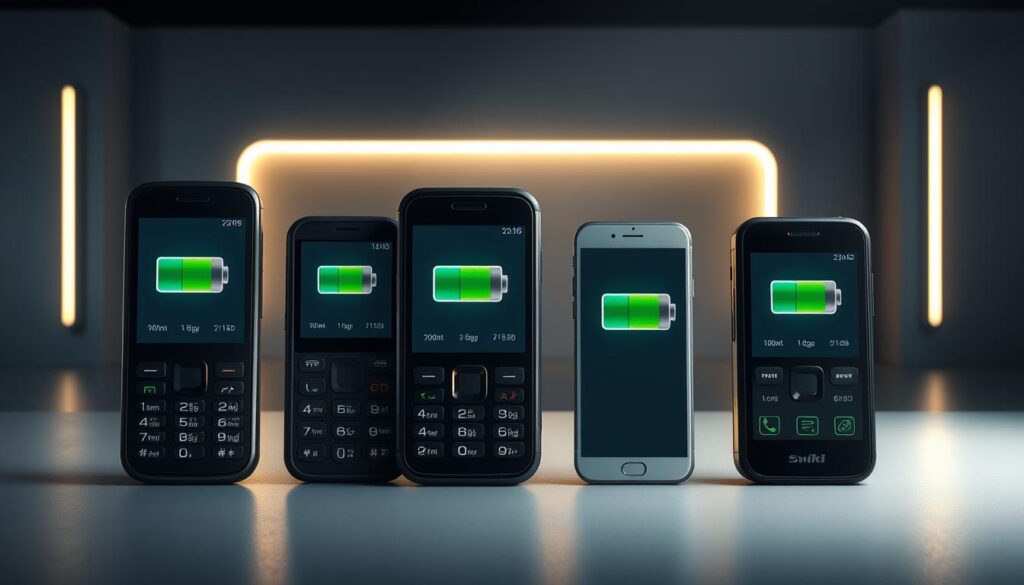
Standby Time Comparison
Standby time is crucial for phones without internet. It shows how long a phone can go without needing a charge. Some non-internet phones can last up to 30 days on one charge.
Top battery life phones are often compared in reviews. This helps buyers make informed choices.
Talk Time Rankings
Talk time is vital for those who talk a lot on their phones. Non-internet phones have good talk times. Some can talk for up to 20 hours straight.
Charging Options and Battery Replacement
Charging and battery replacement are important. Many non-internet phones have removable batteries. This makes it easy to swap them out when needed. Some also support fast charging.
In summary, non-internet phones are great for battery life. They have long standby times, good talk times, and easy charging. These features make them a good choice for those who want a reliable phone.
Price Range Analysis for Internet-Free Phones
Internet-free phones come in many prices, from cheap to expensive. This means they fit many budgets. They’re great for those who want something simple, durable, or with special features without the need for a smartphone.
Budget Options Under $50
If you’re on a tight budget, there are phones under $50. These phones let you call and text. Some even have FM radio or simple games.
- Nokia 3310 3G: A modern take on the classic Nokia 3310, offering reliability and long battery life.
- CAT B35: A basic feature phone with a robust design.
Mid-Range Options ($50-$100)
In the mid-range, you get more for your money. These phones are better made, have nicer screens, and might have a camera or more storage.
Key options include:
- LG Classic Flip: A flip phone with a sleek design and modern features.
- Jitterbug Flip2: Designed for seniors, offering simplicity and emergency response features.
Premium Feature Phones ($100+)
Premium phones are tough, have cool features, and are often rugged. They’re perfect for those who want reliability and special features without the internet.
Notable examples are:
- Sonim XP3: Known for its ruggedness and long battery life.
- Caterpillar B25: Offers a robust design and additional features like GPS.
When picking an internet-free phone, think about your budget. There are many choices, from simple to feature-rich phones. You’re sure to find one that fits your needs and wallet.
Carrier Compatibility Guide
Choosing a cell phone without internet means you need to know about carrier compatibility. This is key to how well your phone works with your carrier’s network.
It’s important to check if your phone works with major US carriers. Most basic phones work with many carriers, but it’s best to confirm this.
Major US Carriers Support
Carriers like Verizon, AT&T, and T-Mobile support many phones. But, the type of network they use can affect if your phone works.
| Carrier | Network Technology | Supported Phones |
|---|---|---|
| Verizon | CDMA | Nokia 3310, LG Classic Flip |
| AT&T | GSM | Nokia 3310, Jitterbug Flip2 |
| T-Mobile | GSM | LG Classic Flip, Sonim XP3 |
MVNO Options for Basic Phones
MVNOs like Cricket Wireless, Boost Mobile, and Straight Talk Wireless offer cheap plans for basic phones. They often use the networks of big carriers.
“MVNOs provide a cost-effective solution for users who need basic phone functionality without the bells and whistles of smartphones.”
2G/3G Network Shutdowns and Impact
Carriers are shutting down 2G and 3G networks, making older phones useless. Make sure your phone supports 4G or LTE to keep using it.
Knowing about carrier compatibility and network shutdowns helps you choose the right phone without internet.
Potential Limitations of Phones Without Internet
Non-internet phones are simple and easy to use. But, they don’t have all the features we’re used to. Knowing their limits can help us use them better.
Navigation Without Maps
One big problem with non-internet phones is finding your way. They can’t use digital maps. But, some phones have basic GPS or work with GPS devices.
Emergency Services Access
Most phones, including non-internet ones, can call 911 in emergencies. This is a key feature for getting help when needed. It’s good to know you can still call for help, even without internet.
Communication App Alternatives
Non-internet phones can’t use modern messaging apps. But, they can send texts and pictures. For more features, you can try two-way radios or special messaging devices.
The table below shows some limits and how to work around them for non-internet phones:
| Limitation | Description | Potential Workaround |
|---|---|---|
| Navigation | Lack of digital maps | Use a separate GPS device or basic phone GPS |
| Communication Apps | Limited to SMS/MMS | Use two-way radios or dedicated messaging devices |
| Information Access | No internet for news or info | Use a separate device or rely on broadcast media |

In summary, non-internet phones have their downsides. But, knowing these can help us choose the right tools for our needs.
Essential Features to Look for in a Non-Internet Phone
To find the best cell phone without internet, it’s crucial to examine the essential features that matter most. When evaluating non-internet phones, several key aspects come into play.
Call Quality and Reception
One of the primary functions of any phone is making and receiving calls. Therefore, call quality and reception are paramount. Look for phones with clear audio and strong signal reception. Some phones, like the Nokia 3310 3G, are known for their robust call quality.
Texting Experience
The texting experience is another critical feature. A good non-internet phone should have a comfortable keypad or keyboard for typing messages. Some feature phones offer a more traditional typing experience, while others may have a more basic interface.
Camera Capabilities
Although not the primary function, camera capabilities can be an important consideration. Some non-internet phones come equipped with basic cameras for taking photos. The quality may not match that of smartphones, but they can still be useful.
Durability and Build Quality
Durability and build quality are also essential. A well-built phone can withstand daily wear and tear, and some models are even designed to be rugged or waterproof. For instance, the Sonim XP3 is known for its ruggedness.
By focusing on these essential features, you can find a non-internet phone that meets your needs and provides reliable service.
My Testing Methodology and Real-World Experience
I used a detailed approach to test non-internet phones. I looked at many factors to understand how they work in real life.
How I Evaluated Each Phone
I checked each phone’s build, interface, and features. Call quality and reception were key, as they affect the phone’s main use. I also tested how durable each phone was.
I tested each phone in different places to see how they perform. This included areas with weak signals to check their signal handling.
Performance in Various Environments
I tested phones in cities and rural areas. The results showed some phones handled different network conditions better. For example, phones with strong signal reception worked well in rural areas with weak signals.
User Feedback Integration
I also listened to user feedback to understand more about the phones. Users often mentioned battery life and ease of use as important. They liked phones that lasted long and were easy to use.
One user said, “The phone’s simple interface was a big reason I bought it. It’s easy to use, even for those not tech-savvy.” This feedback showed how important usability is in non-internet phones.
Conclusion
Exploring cell phones without internet shows a wide range of choices. Each one meets different needs and wants. The top pick is one that’s simple, works well, and is easy on your wallet.
There are phones like the Nokia 3310 3G for basic needs. Or the Sonim XP3 for those who need something tough. Seniors might like the Jitterbug Flip2 for its easy use and safety features.
When picking a phone, think about battery life, call quality, and how durable it is. Also, make sure it works with your carrier.
The right phone for you depends on what you need. Maybe you want to cut down on digital use, save money, or just like simple phones. By looking at each option’s good and bad points, you can find the perfect phone for your life.
FAQ
What is a cell phone without internet, and how does it differ from a smartphone?
A cell phone without internet is called a feature phone or basic phone. It lets you make calls and send texts but can’t go online. Smartphones, on the other hand, can surf the web, run apps, and do more than just call and text.
Why would someone prefer a phone without internet?
Some people like phones without internet for a few reasons. They might want to cut down on digital use, save money on data, or feel safer and less distracted. It’s also simpler to use.
Can I use a smartphone without internet?
Yes, you can use a smartphone without internet by turning off data. On iPhones, go to Settings > Cellular/Mobile Data and turn it off. On Androids, go to Settings > Connections > Mobile Networks and turn off Mobile Data.
What are some of the best cell phones without internet available?
Some great choices include the Nokia 3310 3G, LG Classic Flip, Sonim XP3, and Jitterbug Flip2. They offer different features like simplicity, toughness, or ease for seniors.
How do non-internet phones compare to smartphones in terms of battery life?
Non-internet phones usually last longer than smartphones. They can go weeks without needing a charge and can talk for hours.
Are there any limitations to using a phone without internet?
Yes, there are some downsides. You can’t use maps or GPS, and it might be hard in emergencies. You also miss out on messaging apps that need the internet.
What features should I look for when choosing a non-internet phone?
Look for good call quality, easy texting, a camera if you need one, and durability. This is important if you’ll use it in tough places.
How do I ensure a non-internet phone is compatible with my carrier?
Check with your carrier to see if they support the phone’s technology and frequency bands. They might also have plans for basic phones.
Can I still use a phone without internet for emergencies?
Yes, you can still call 911 and other emergency numbers with a phone without internet. Most phones can do this even without internet.
Are there budget-friendly options for non-internet phones?
Yes, there are affordable options. Some basic phones cost under . There are also mid-range and premium phones with more features at higher prices.
